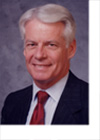About StrategyStreet.Com
About Us
StrategyStreet has been created by Don Potter while he was head of Windermere Associates. Founded in 1984, Windermere Associates used StrategyStreet in its consulting work. Don Potter retired from Windermere Associates in 2011 and continues to develop StrategyStreet.com.
StrategyStreet improves your capabilities and contributions to your company in highly competitive markets. We base StrategyStreet on long experience and extensive research in these challenging markets. We follow patterns of development in markets under varying economic conditions. StrategyStreet helps you understand the dynamics of differing economic conditions and develop new and effective ideas to exploit them.
Our Mission
StrategyStreet's mission is to bring the experience of many other management teams to improve your capabilities in competitive markets.
For many years, we have worked in and researched competitive conditions in several hundred industries. We have found that:
-
Companies follow patterns in responding to economic pressures.
-
Some of these patterns of response yield much better results than others.
-
A management team in any industry can benefit from understanding these successful patterns.
StrategyStreet uses the analytical frameworks we developed in this work to describe the patterns we have found and to present many examples drawn from the experiences of other management teams.
Experience Base on the Evolution of Markets
Our in-depth research makes StrategyStreet a unique resource.
Why do some companies succeed even in tough times? Are there patterns that underlie success in dealing with overcapacity, intense competition, and tight margins? Are those patterns the same regardless of industry? Do these patterns vary when the industry is growing fast or is highly profitable?
Those questions prompted us to begin a disciplined study to track the development of industries in five different economic conditions:
-
Developing. Industry growth exceeds 15% per annum.
-
Deteriorating. The industry is experiencing the early stages of a price war.
-
Hostile. Price competition is intense. The industry prices sit well below the level required to replace current assets.
-
Reprieve. After some time in hostility, industry prices are recovering.
-
Stable. The industry enjoys attractive returns.
For our study, begun in 1985, we developed an understanding of patterns of competition in these five economic conditions. We analyzed financial reports and industry economic studies, conducted extensive interviews with current and retired executives, industry analysts, consultants and long-time industry customers. We measured the success of many companies' efforts to segment their markets, develop new products and services, change prices and reduce costs in each of these economic conditions.
Innovation Examples
The generation of comprehensive and creative new ideas is always a challenge. All of us get ideas from others. Accordingly, we have collected several thousand examples of other management teams' initiatives to segment customers, to develop new products and services, to change pricing and to manage costs. We have organized these examples into practical actions for you to take. These examples improve the number and quality of the ideas our subscribers develop in your business. Examples of Innovation Ideas>>
Background

Don Potter has been a consultant to senior managements of substantial companies since 1973. For eleven of those years, he was with the international consulting firm of McKinsey & Company. He was a partner with McKinsey & Company, and served both domestic and international companies from the firm's San Francisco and Amsterdam offices. For several years, Don continued advising senior managements of both domestic and foreign concerns while heading Windermere Associates. Don's principal work today focuses on developing the concepts and examples behind StrategyStreet.
The work Don has undertaken has encompassed many different types of industry environments, for example:
-
Capital intensive: Wood products, oil, chemicals, equipment rental, lodging, newsprint, coated paper
-
Labor intensive: Insurance, investment banking, airframe manufacturing, wholesaling, direct consumer sales, trucking
-
High growth: Electronics, financial services, legal services, semiconductor test equipment, personal computers, wireless communications
-
Low growth: Metal fabrication, manufacturing equipment, food processing, industrial equipment, food service, residential roofing, gypsum, quick service restaurants, retail banking
-
Industries under profit pressure: Airline, heavy construction, dredging, agricultural equipment, building products, truck manufacturing, wholesale banking
-
High profit industries: Pharmaceuticals, oil exploration and development, investment banking, executive recruiting, financial transaction processing, disposable diaper, credit card, commercial printing
-
Deregulating: Commercial banking, health care, trucking, airline
-
Government protected: Various European industries, military components
Don's consulting work used the approaches on StrategyStreet to focus on questions of business policies to build market share and reduce relative costs through customer segmentation, product and service innovation, new pricing and overhead productivity growth.
Don's current work expands on StrategyStreet's extensive databases on the experiences of management teams in a wide range of industries. These databases demonstrate repeating patterns of customer and competitor responses to the economic pressures of intense competition. The understanding of these patterns allows you to forecast and prepare for industry developments well ahead of their occurrence.
Don is a frequent speaker to management groups, and the author of several articles. The focus of much of his public speaking and writing is on approaches and tactics that companies can employ to prosper in difficult economic times.
Prior to starting his consulting career, Don worked for several years as a financial executive with the Exxon Corporation. He was based in both New York and London with Exxon, and worked primarily on issues of corporate financial policy.
Don's educational background includes a MBA from Harvard Business School, where he graduated as a Baker Scholar, an award granted to 5 percent of the graduating class. He is also a
magna cum laude graduate in Arts and Letters from the University of Notre Dame.
Return to: Home Page
